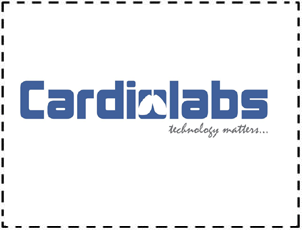In a world that is becoming increasingly digitalized, agencies of all sizes are looking for Policy Administration Systems to improve their operational efficiency and reduce costs. As a result, SaaS solutions are becoming more and more popular.
Small agencies have the chance to test the waters as early adopters and determine how they can capitalize on these advancements. With an SaaS operating model, agencies don’t need to service, update, or maintain the software. Instead, a subscription fee is paid to a service provider, who implements, configures, and integrates the Policy Administration system.
After the implementation is completed, the SaaS solution works to help the agency cut costs, increase productivity and convert expensive operational costs into added value for customers.
Benefits of a SaaS based Policy Administration System For Small Agencies
Scalable
SAAS’s built-in flexibility means that it can scale up and down to meet the changing demands of a small agency. It’s no problem if you need to increase the number of users, add extra data storage, or add new modules. Whether you’re going through a difficult period or a sudden boom in business, your SaaS solution will meet your volatile needs.
A SaaS model establishes a long-term relationship with a vendor. As your business needs change, your SaaS partner will be able to supply APIs (Application Programming Interfaces) that allow your PAS to interface with other internal and external systems.
Cost-Effective
SaaS solutions do not incur high upfront costs. Since a SaaS based PAS can be hosted in the cloud, insurers are not responsible for purchasing hardware or for dealing with expensive upgrades and maintenance fees.
Instead, they pay for shared infrastructure and take advantage of the SaaS provider’s professional expertise. And, as the insurer no longer requires hardware investment, the financing focus shifts from capital expenses (CAPEX) to operating expenses (OPEX). This reduces costs and increases flexibility, which are two things small agencies will benefit from tremendously.
Additionally, when a new version of a program is launched, your IT team won’t have to worry about installing the newest updates. The SaaS provider will host the solution on a cloud service provider like Azure or AWS and will be solely responsible for ensuring that everything runs successfully.
Focus on Value-Added Tasks
As an insurance agency, you want to be focused on what you do best, and not waste resources on IT solutions that can be outsourced. This is not only more efficient and beneficial, but also a way to limit unnecessary expenses. Additionally, as a small agency, it may be difficult to attract and retain IT personnel. IT talent is constantly looking for challenge and opportunities for growth and the tasks at hand may not be rigorous enough to retain talent.
For these reasons, working with a SaaS partner will benefit you as a small agency. Your SaaS partner will maintain the PAS, install, and test updates as they become available. Also, your SaaS partner will ensure all security fixes, patches and updates are implemented right away — meaning less responsibility for your IT staff and decreased risk for your organization and clients.
Conclusion
Overall, migrating to a SaaS based Policy Administration System will enable small agencies insurance software solutions to scale quickly and efficiently without the burden of costly infrastructure and internally hiring/training an IT team. Instead, carriers can turn their focus towards developing their CX and product strategy, thus growing their business. check out other agency management software








